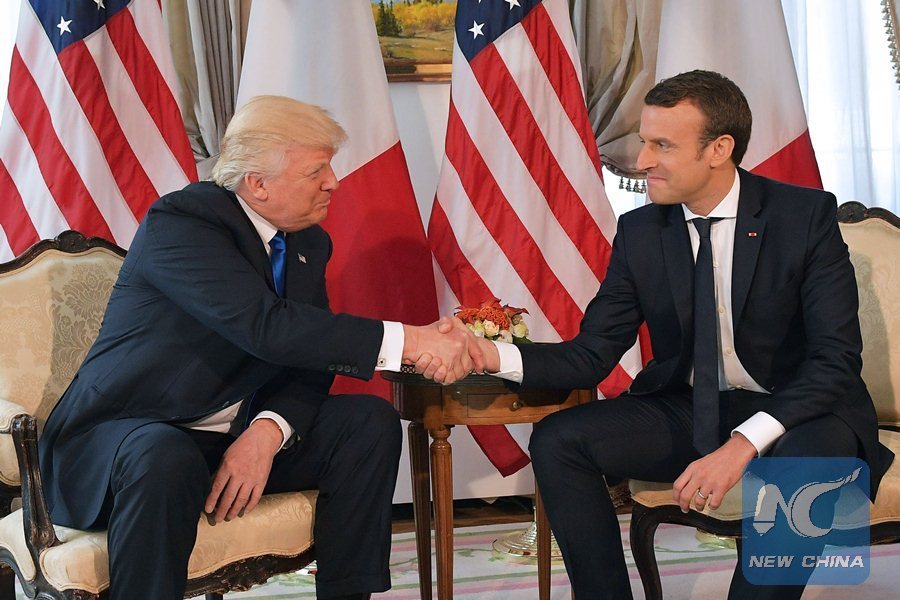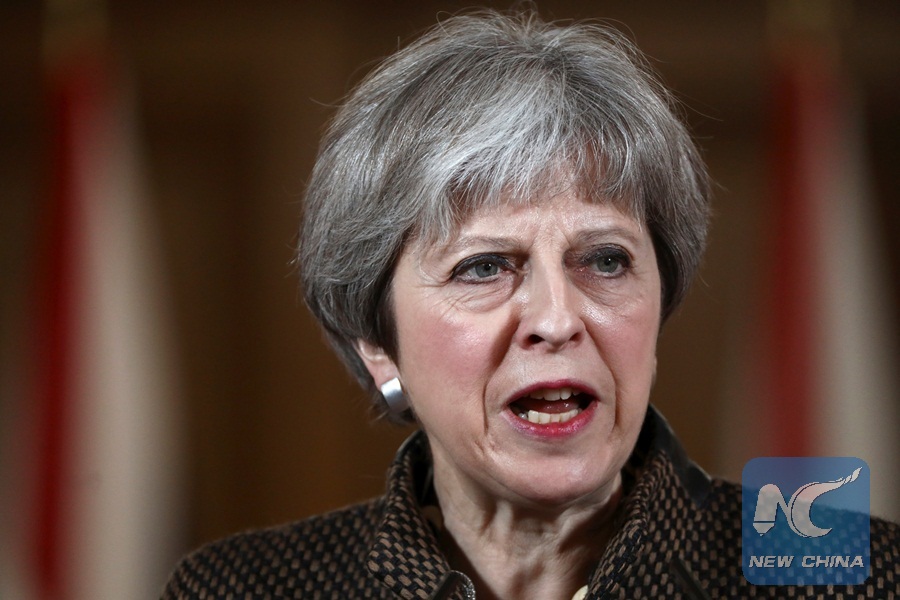
In this file photo taken on May 25, 2017 US President Donald Trump (L) and French President Emmanuel Macron (R) shake hands ahead of a working lunch, at the US ambassador's residence, on the sidelines of the NATO (North Atlantic Treaty Organization) summit, in Brussels. (Xinhua/AFP)
WASHINGTON, April 14 (Xinhua) -- U.S. President Donald Trump on Saturday talked with French President Emmanuel Macron and British Prime Minister Theresa May via phone over the three nations' collective strikes on Syria Friday.
According to the White House, Trump and Macron affirmed in the call that the joint airstrikes were "successful and necessary" to deter Syria from any further use of chemical weapons.
They also discussed the need to reinvigorate multinational stabilization efforts in Syria to ensure the long-term defeat of Islamic State (IS).
In a separate call, Trump thanked May for her support of the strikes.
They also said the airstrikes in Syria in response to the alleged chemical weapons attack in Douma on April 7 were successful and necessary to deter the further use of these weapons.

Britain's Prime Minister Theresa May attends a press conference in 10 Downing Street, London, April 14, 2018. (Xinhua/REUTERS)
Earlier on Saturday, Trump hailed the "perfectly executed strike" of the three western nations on Syria, noting "Mission Accomplished!" in his tweet.
He also thanked France and Britain for their joining in the strike with the United States with "Fine Military," saying the strikes "could not have had a better result."
Trump on Friday ordered precise strikes against Syrian military facilities with Britain and France in a coordinated action. U.S. defense chief James Mattis said later that "right now, this is a one-time shot," rejecting to rule out further strikes against Syria.
UN Secretary-General Antonio Guterres on Saturday expressed concern over the U.S-led strike in Syria, and called for adherence to the UN Charter and international law on the issue.
The trilateral operations came with questionable legitimacy due to the lacking of proof that could show Syrian government behind the chemical attack, and has been widely criticized by Syria, Russia and Iran, among other nations.

